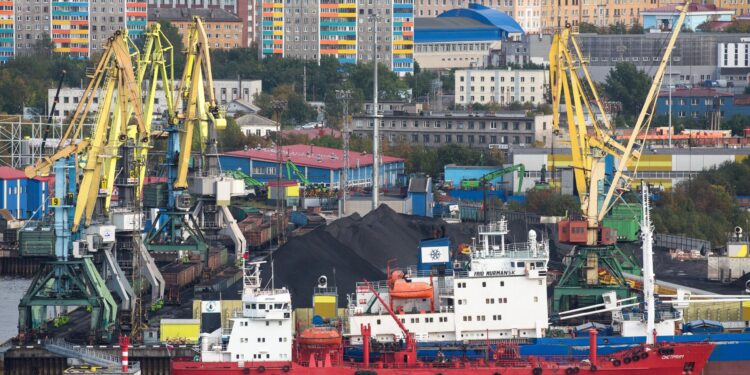The imposition of a new package of US sanctions on the Russian oil sector has had significant impacts on the movement of oil tankers and global crude prices, as ship tracking data showed on Monday that 65 oil tankers have stopped in several international locations since the sanctions were announced on January 10.
According to an analysis conducted by Reuters using data from Marine Traffic and the London Stock Exchange Group, oil tankers stopped in various locations, including 5 tankers near Chinese ports, 7 off Singapore, and another near Russia in the Baltic Sea and the Far East region.
25 tankers also stopped in various locations, including off Iranian ports and near the Suez Canal.
In the new sanctions, the US Treasury Department targeted the two Russian oil companies, Gazprom Neft and Surgut Oil and Gas, in addition to 183 ships transporting Russian oil.
These sanctions come as part of efforts to reduce the revenues that Moscow uses to finance the war with Ukraine.
This halt in the movement of oil tankers added more pressure on the maritime transport sector and global energy markets, according to the German News Agency, as oil futures prices began the week’s trading with a significant increase.
Brent crude, the global oil standard, rose by 1.8% to reach $81.17 per barrel for next March delivery, up from $79.76 at the close of trading on Friday, and today the price ranged between $80.26 and $81.67 per barrel.
US West Texas Intermediate crude also rose by 1.76%, reaching $77.08 per barrel, compared to $75.75 on Friday.
Analysts expect that the sanctions will push current consumers of Russian oil to search for alternative supplies from the Middle East and other production regions, which will boost oil prices.
Although the dollar index rose against major currencies to 110.18 points – its highest level in months – oil prices continued to rise, in light of expectations that challenges related to supply chains will continue.
It is noteworthy that the US sanctions on the Russian oil sector are not limited to financial restrictions only, but also include reducing the freedom of movement of oil tankers, which contributes to the exacerbation of the crisis and puts greater pressure on global energy markets.



